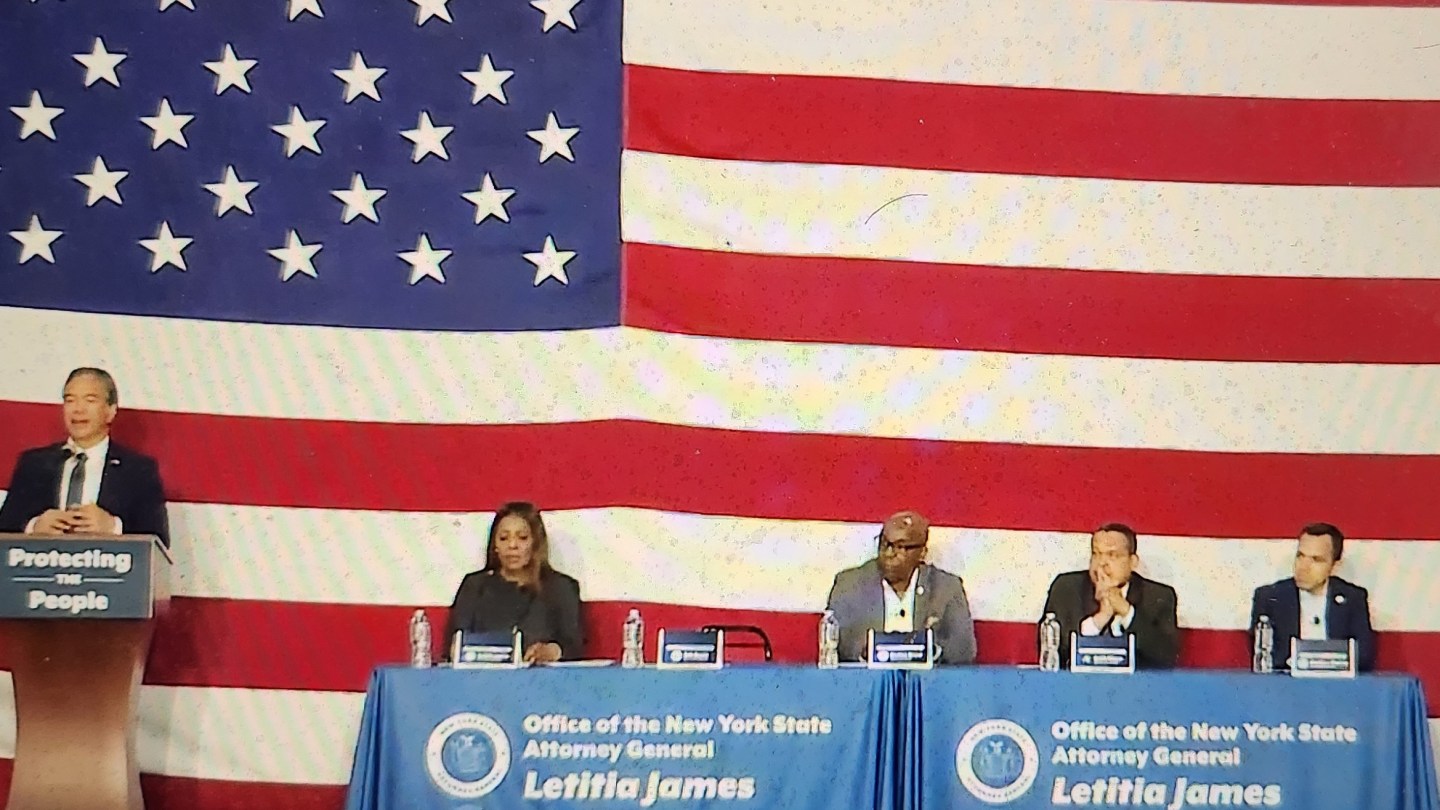Since President Donald Trump announced that he wanted to impose a 100 percent tariff on all movies produced outside the U.S., everyone from studio executives to Democratic lawmakers have been scrambling to find a way to stop him.
But California’s top prosecutor has a novel approach — and he may be willing to act on it.
“[The president] is going after the iconic industry we’re so proud of in California all because it’s in a blue state that doesn’t seem to be supportive of him,” Bonta told The Hollywood Reporter on Thursday evening. “Targeting a base of the population,” like this, he said, could mean “a First Amendment basis for action.”
Essentially, what Bonta is suggesting that because Trump appears to be financially penalizing people for speech he doesn’t like — whether through movies and TV shows that support progressive causes or comments and fundraisers in the same vein — their First Amendment rights to express those views are being violated.
Bonta said his office is already exploring how a legal action might be conducted on that basis. “We will defend our state and our people, including Hollywood, and do a full review,” he said.
Using the courts to stop Trump’s Hollywood tariffs has not so far been suggested by top California lawmakers, on any basis. Earlier in the week both Governor Gavin Newsom and Senator Adam Schiff suggested redirecting the president toward the carrot of a federal tax credit for U.S. productions and away from the stick of a tariff. “While blanket tariffs on all films would have unintended and potentially damaging impacts, we have an opportunity to work together to pass a major federal film tax credit to re-shore American jobs in the industry,” Schiff told THR.
A legal maneuver to stop tariffs generally, however, would not be new for California pols. Last month Newsom and Bonta announced that they were suing Trump for placing tariffs on a host of goods that has had “devastating impacts on the economy” and were “creating chaos in the stock and bond markets.” Much of the complaint focused on procedural issues.
Large swaths of the entertainment industry have been silent on or critical of the tariffs, with the Teamsters Union among the only meaningful constituencies expressing support.
It is unclear whether a First Amendment argument against Hollywood tariffs would hold legal water, though a number of Hollywood executives and creators have privately said they are maintaining a culture of silence out of fear of financial penalties.
Bonta has been busy with other anti-Trump actions of late, suing the administration this week over the halting of windfarm projects and mass federal firings, adding to more than a dozen lawsuits his office has already filed against the president. He also told THR that the deep cuts to the NEA and NEH were squarely on his radar.
“The Trump administration seems to be on a vengeance tour and staging an ongoing attack on the critical guard rails and pillars of our democracy, including our free press, our attorneys and those who have the platform of free expressions,” he said. “The fundamental rights of free expression is something we hold dear aand is enshrined in our constitutional rights,” adding, “and we will be reviewing these cuts to the arts and platforms of free expression to make sure they’re lawful.”
Bonta said that the executive branch “doesn’t have the power of the purse. It’s supposed to implement what Congress decides to fund, and if he doesn’t agree with it, that’s a losing argument” in court.
On Thursday night Bonta gathered with Democratic attorneys general from New Jersey, Illinois and Minnesota at a town hall event in Westchester County, NY, hosted by New York attorney general Letitia James, also a key cog in the legal fight against many of the White House’s actions.
The gathering had a large a spirited feel of a rally, as each AG took the stage to cheer of support from groups that included organized labor, veterans and educators. “I’m fired up,” Thomas Hart, the president of IUOE Local 94, told the AG’s.
Entertainment issues sometimes came to the fore, as when Minnesota attorney general Keith Ellison noted Trump’s efforts against PBS and NPR.
“He could try to destroy public broadcasting and NPR and Big Bird,” Ellison said. “But he wouldn’t get very far if he tried to do it legally. So he’s trying to do it illegally.”











